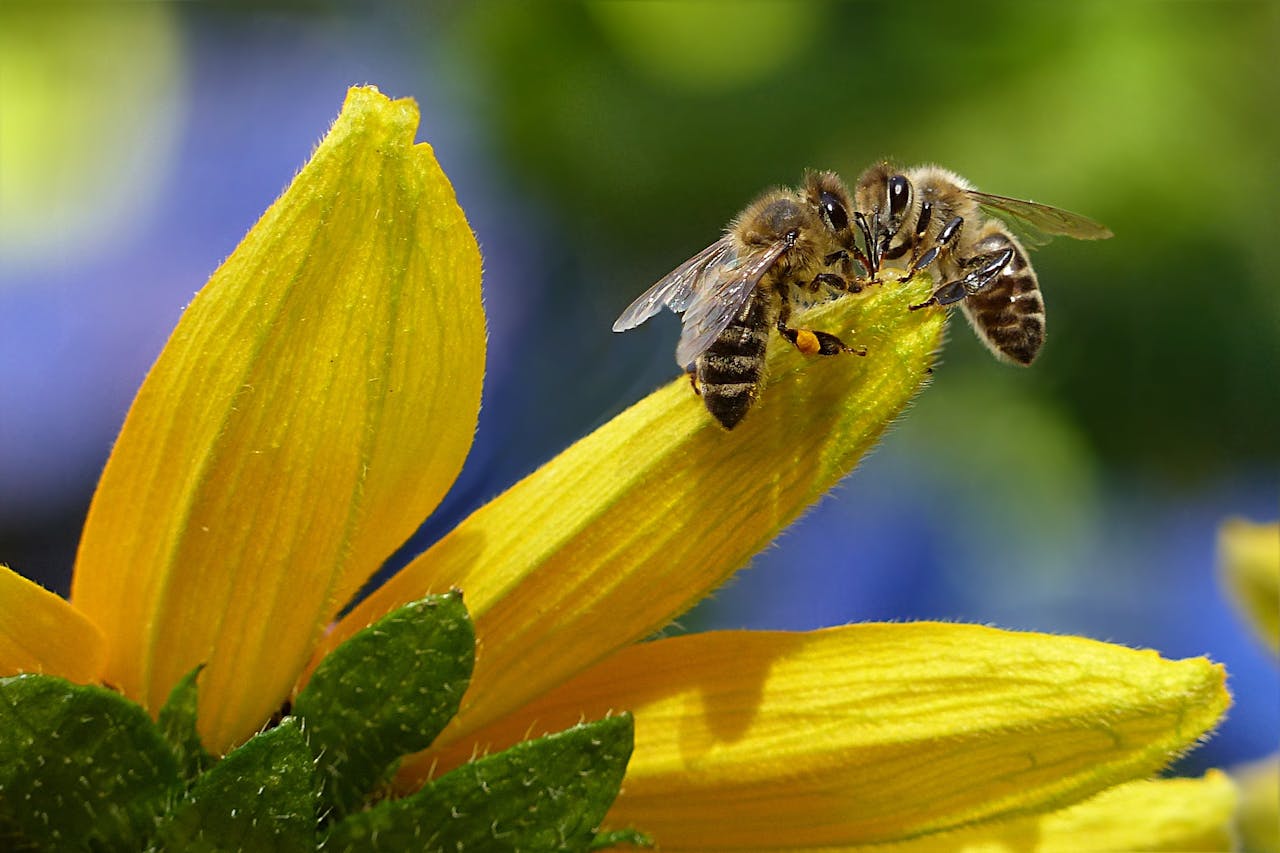How Different Types of Bees Shape the Future of Sustainable Farming
From honey producers to soil guardians, every bee plays a vital role in the balance of nature and the health of our farms

How about a world where crops don’t bloom, fruits don’t ripen, and flowers lose their vibrant hues. This isn’t a scene from a dystopian novel, it’s what our planet could face without bees. These tiny pollinators, often underestimated, are nature’s most efficient workforce. Understanding the different types of bees and their unique roles can help farmers, gardeners, and agricultural innovators build more resilient and sustainable ecosystems.
The True Heroes of Agriculture
Bees are not just honey-makers, they are essential pollinators responsible for nearly one-third of the food we eat. From fruits and vegetables to oilseeds and nuts, their tireless activity ensures the reproduction of countless crops. What makes bees particularly fascinating is their diversity. They are not a single species but an entire world of specialized pollinators divided into two broad categories i.e. Social Bees and Solitary Bees.
Social Bees: The Cooperative Pollinators
Social bees live and work in highly organized colonies, each member performing specific tasks. The most well-known examples include the Western Honey Bee, Italian Bee and European Dark Bee, all of which are central to commercial pollination and honey production. These species exhibit complex social behaviors, maintaining hives that can house tens of thousands of individuals.
Bumblebees, such as the American Bumblebee, Common Eastern Bumblebee and Golden Northern Bumblebee are equally important. Their ability to perform "buzz pollination" (vibrating flowers to release pollen) makes them invaluable for crops like tomatoes, peppers and berries. Even the more aggressive Killer Bee or hardy Russian Honeybee contribute to pollination under challenging climatic conditions, proving nature’s adaptability.
Social bees thrive best when farms adopt sustainable practices such as reduced pesticide use, diversified cropping and maintaining natural flower strips. These strategies not only support bee health but also improve crop yield and resilience.
Solitary Bees: The Silent Workers
Unlike their social cousins, solitary bees live independently, each female constructing her own nest and collecting pollen for her offspring. Yet, their pollination efficiency often surpasses that of honeybees. The Mason Bee, Tawny Mining Bee, and Leafcutter Bee species (like the Giant Resin Bee and Banksia Bee) are standout performers in this group.
Carpenter Bees, such as the Violet Carpenter Bee and Eastern Carpenter Bee, are essential for large flowers and trees. Meanwhile, species like the Orchard Mason Bee and Small Scabious Mining Bee are champions of fruit orchards and wildflowers. Their individualistic nature makes them less susceptible to diseases that spread in hives, contributing to a more balanced pollinator network.
Encouraging solitary bees on farms can be as simple as leaving some bare soil patches, maintaining dead wood for nesting or installing bee hotels. These small steps can greatly enhance pollination diversity and sustainability.
Why Bee Diversity Matters for Sustainable Farming
Sustainable farming is not just about avoiding chemicals, it’s about nurturing biodiversity. Each bee species has evolved to specialize in certain flowers, pollination techniques and environments. This diversity ensures that if one species struggles, others can fill the ecological gap, maintaining the stability of food production systems.
For instance, while honeybees excel in large monoculture pollination, solitary bees are better suited for native plants and small-scale crops. Together, they create a robust pollination network that sustains ecosystems naturally, reducing dependence on artificial fertilizers or synthetic inputs.
Farmers adopting bee-friendly practices like planting wildflower borders, avoiding harmful pesticides, using organic biostimulants and maintaining nesting sites are not just protecting bees, they are investing in the long term fertility of their land.
Working With Nature
The path to sustainable agriculture lies in cooperation with nature’s systems rather than control over them. Bees, both social and solitary, are living proof that balance creates abundance. Supporting their diversity is one of the most practical and cost-effective ways to ensure food security and ecological health.
Farmers, gardeners, and conscious consumers all share this responsibility. Whether it’s creating pollinator gardens, conserving natural habitats or promoting chemical-free farming, every small action contributes to a larger goal, keeping our world buzzing with life.
#SustainableFarming #BeeConservation #PollinatorPower #BiodiversityMatters #EcoFarming #OrganicAgriculture #SaveTheBees #NaturalFarming #AgroEcology #NatureBasedFarming



